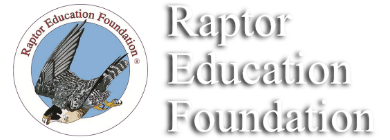What is Environmental Literacy?
Just like we think of literacy as the ability to write and read in a particular language, “Environmental Literacy” means understanding the language of nature and the world that we live in. One hundred years ago when people lived much closer to the land, and relied more directly upon their own crops and animals for food, the connection between human lives and various ecosystems was better understood and appreciated by all people, especially the young. Children understood that if it didn’t rain, the crops harvested that fall would be meager and that might affect a family’s larder for the winter, or their bank accounts. Folks spent more time outside, watching all the living creatures that either shared their neighborhood, or shared their own land.
Since REF was founded in 1980, we’ve noted a steady decline in how children understand and even perceive the natural world. One of our favorite stories comes from a colleague of a board member, who recounts how in the late 1980s, the family was taking a road trip which began by driving east out of the Los Angeles Basin. Once the family car was in a more rural area, the father behind the wheel innocently pointed out some cows in a field, and called them “hamburgers”. His children, not yet teenagers, were confused. He went on to explain further what he meant, and was greeted by horrified faces. Only then did he realize that his kids had absolutely NO idea where hamburger meat came from, and what it took to produce it! Such a disconnection from where our food comes from would have been unthinkable only a few decades earlier.
Sadly, it’s not just urban children that sometimes seem so “illiterate” about the language of nature. Fewer than ten years ago REF was presenting outdoors at a large, family-owned ranch in southwestern Colorado. An oasis of indescribable beauty, this area west of Trinidad features numerous ecosystems ranging from short-grass prairie, to riparian habitat, to mixed deciduous woodlands, coniferous forests, and alpine tundra. The owners have worked with Colorado Parks & Wildlife and other entities such as the Rocky Mountain Elk Foundation for decades to preserve and enhance habitat not only for resident wildlife, but also in order to have the ranch serve as a living laboratory and outdoor classroom for children in the neighboring communities, all of which are also fairly rural. While we were preparing to begin our program, the ranch manager noticed an elementary-aged child picking up dried pine needles, crushing them in his hands, and then scooping up and repeating the action, intently focused on his work. Finally the manager asked the boy what he was doing, and the boy asked him, “What is this stuff?” The young man had NO idea that he was playing with dried pine needles, despite living in southwestern Colorado!
This is why environmental education is so important; this is why we do what we do. Nature is a vast, infinite library, but if you cannot read the language in the books, you cannot understand and enjoy what you behold. Our programs give students the tools to unlock the language…to become environmentally literate, and to be able to “read” and understand the world around them.
“In Nature’s book of secrecy, a little I can read.” ~William Shakespeare
Find out why our birds and programs have excited students and teachers since 1980. Call us at 303-680-8500.
